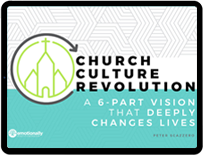Dietrich Bonhoeffer: Applications for Leadership
I recently finished Eric Metaxas’ Bonhoeffer: Pastor, Martyr, Prophet, Spy. It was, by far, the best biography on Bonhoeffer I have read. After pondering his life, the following were three key questions I asked myself: 1. Do I really have the courage to follow Jesus wherever He leads? Between his natural talents and upper-class, family connections, Bonhoeffer could have done anything with his life. Yet he became a pastor and theologian. When Hitler came to power in Germany, passing legislation that German Jews without Aryan blood be removed from the German Christian church, Bonhoeffer immediately saw the contradiction. He was one of the first to speak out: “Only he who cries out Jews can sing Gregorian chant.” We must “speak up for those who cannot speak for themselves” (Proverbs 31). As a result, he lost his position, his security, his reputation, his opportunity to marry the woman he loved, and his life out of. Read more.





